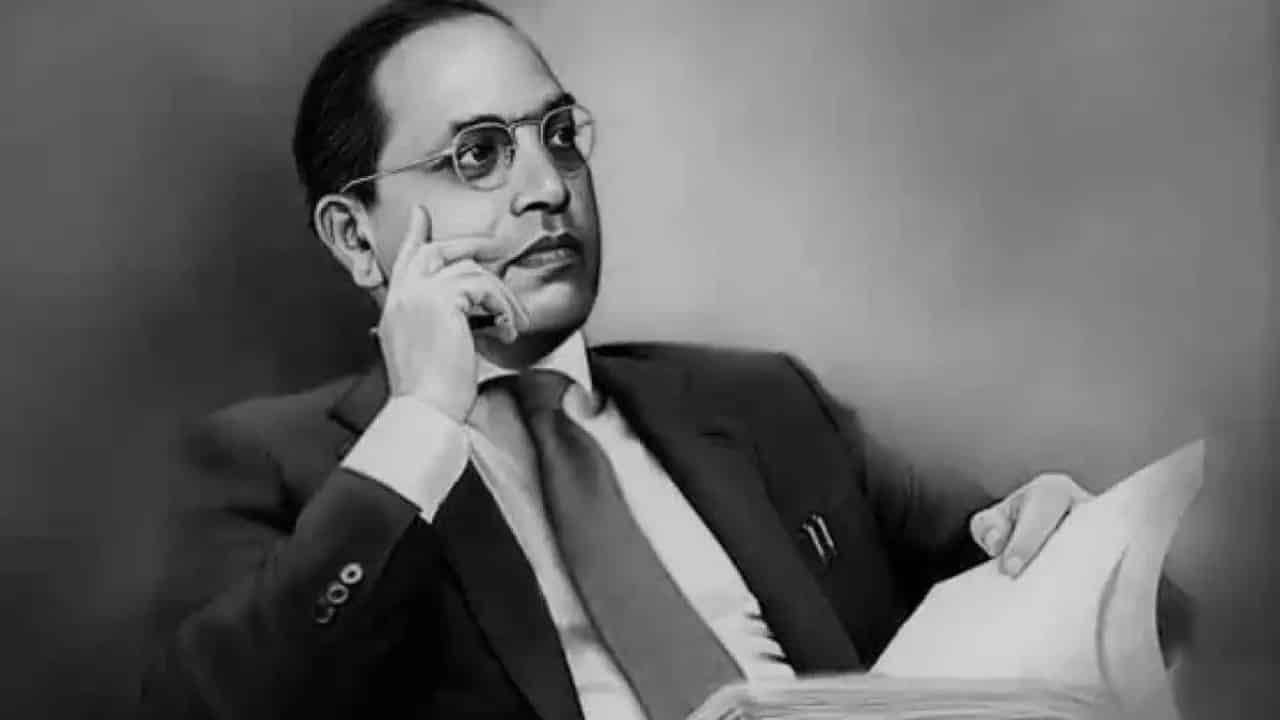B R Ambedkar: Pioneer of Equality and Social Justice – Insights, Contributions, and FAQs
Key Points:
- Early Challenges: He faced systemic discrimination due to the caste system, which fueled his determination to fight for social justice.
- Education: Obtained world-class education in the U.S. and U.K., earning multiple doctorates and developing a vision for equality.
- Crusade for Dalit Rights: Organized movements and campaigns to challenge untouchability and caste-based prejudices.
- Architect of the Constitution: Played a key role in drafting India’s Constitution, emphasizing equality, liberty, and fraternity.
- Buddhist Conversion: Adopted Buddhism as a path to liberation from caste oppression.
- Lasting Legacy: Continues to inspire global movements for social equality and justice.
Bhimrao Ramji Ambedkar, popularly known as Babasaheb Ambedkar, is one of the most influential figures in modern Indian history. More than just the architect of the Indian Constitution, he was a multifaceted leader, a social reformer, a jurist, an economist, a politician, and a passionate advocate for the marginalized. His life and work continue to inspire movements for social justice and equality across the globe. This blog post delves into the life, contributions, and enduring legacy of B R Ambedkar, exploring the various facets of his extraordinary journey and his lasting impact on India and beyond.
Early Life and Struggles: The Seed of Revolution
Born on April 14, 1891, in Mhow (now Dr. Ambedkar Nagar) in present-day Madhya Pradesh, Bhimrao Ramji Ambedkar was born into the Mahar caste, considered untouchable within the rigid Indian caste system. This reality profoundly shaped his early life, exposing him to systemic discrimination and humiliation. He experienced firsthand the denial of basic human rights, including access to education, public facilities, and even drinking water.
His early education was a struggle. He was often forced to sit outside the classroom, facing blatant prejudice from teachers and fellow students. Despite these obstacles, Ambedkar displayed exceptional intelligence and a relentless pursuit of knowledge, fueled by a burning desire to uplift his community. He persevered, driven by his father, Ramji Sakpal, a subedar in the British Indian Army, who recognized his son’s potential and ensured he received an education despite the social barriers.
This early exposure to social injustice instilled in him a deep commitment to challenging the caste system and fighting for the rights of the oppressed. It laid the foundation for his lifelong mission to dismantle the structures of inequality and create a more just and equitable society.
Education and Intellectual Pursuits: Forging a Vision for Equality
Recognizing his exceptional abilities, Sayajirao Gaekwad III, the Maharaja of Baroda, provided Ambedkar with a scholarship to pursue higher education in the United States. This was a pivotal moment in his life, providing him with access to world-class education and exposure to Western democratic ideals.
Ambedkar studied economics, political science, and sociology at Columbia University in New York City, earning a master’s degree and a Ph.D. He also studied at the London School of Economics, where he earned a Master of Science degree and a Doctor of Science degree. His doctoral thesis, “The Problem of the Rupee: Its Origin and Solution,” was a groundbreaking work that challenged prevailing economic theories and provided valuable insights into the complexities of the Indian economy.
During his studies, Ambedkar was deeply influenced by the works of John Dewey, whose pragmatism and emphasis on individual liberty resonated with his own beliefs. He also drew inspiration from the writings of reformers like Mahatma Phule, who championed the cause of the marginalized and advocated for social equality.
His education equipped him with the intellectual tools and analytical framework necessary to dissect the intricacies of the caste system and develop a comprehensive vision for social transformation. He recognized that dismantling the caste system required not only legal reforms but also a fundamental shift in social attitudes and cultural values.
Fighting Untouchability: A Tireless Crusade for Dignity
Upon returning to India, Ambedkar dedicated his life to fighting against untouchability and advocating for the rights of the Dalits (formerly known as “untouchables”). He believed that untouchability was a dehumanizing practice that violated the fundamental principles of human dignity and equality.
He launched various movements and organizations aimed at raising awareness about the plight of the Dalits and challenging the oppressive structures of the caste system. Some of his most significant initiatives include:
- Bahishkrit Hitakarini Sabha (Outcastes Welfare Association): Founded in 1924, this organization aimed to promote education, economic development, and social equality for the Dalits. It established schools, hostels, and other facilities to provide access to education and opportunities for advancement.
- Mahad Satyagraha (1927): This movement challenged the denial of access to public water resources to Dalits. Ambedkar led thousands of Dalits to the Chavdar Tank in Mahad to assert their right to drink water from a public source, defying the caste-based restrictions imposed upon them.
- Temple Entry Movement: Ambedkar led several movements advocating for the right of Dalits to enter Hindu temples, which were traditionally closed to them. These movements aimed to challenge the religious legitimacy of the caste system and assert the equal rights of all Hindus, regardless of their caste.
- Independent Labour Party: In 1936, Ambedkar formed the Independent Labour Party to represent the interests of workers and marginalized communities in the political arena. The party advocated for policies aimed at improving working conditions, promoting social security, and ensuring fair representation for all.
Through these movements and organizations, Ambedkar challenged the deeply entrenched prejudices of the caste system and inspired millions of Dalits to fight for their rights and dignity. He understood the importance of self-reliance and empowerment, encouraging Dalits to organize themselves and demand their rightful place in society.
The Constitution and Nation Building: Architect of Equality
Ambedkar’s most significant contribution to India was his role in drafting the Constitution of India. As the chairman of the drafting committee, he played a pivotal role in shaping the fundamental principles and values that underpin the Indian Republic.
The Constitution, under his guidance, enshrined the principles of equality, liberty, and fraternity, guaranteeing equal rights and opportunities to all citizens, irrespective of their caste, creed, religion, or gender. It abolished untouchability and outlawed all forms of discrimination based on caste.
The Constitution also incorporated provisions for affirmative action, providing for reservations in education and employment for Scheduled Castes (SCs) and Scheduled Tribes (STs). These provisions were intended to address the historical injustices faced by these communities and provide them with opportunities to catch up with the rest of society.
Ambedkar believed that the Constitution was a powerful instrument for social transformation, providing a legal framework for dismantling the caste system and building a more just and equitable society. He saw it as a document that would empower the marginalized and ensure that their voices were heard in the political process.
However, he was also aware that the Constitution was just a starting point. He knew that the success of the Constitution depended on the commitment of the people and the government to uphold its principles and values. He constantly reminded the nation that political democracy was meaningless without social and economic democracy.
Economic Thought and Planning: A Vision for Inclusive Growth
Ambedkar was not just a social reformer and jurist; he was also a keen economist who understood the importance of economic development in achieving social justice. His writings on economics, particularly his doctoral thesis on the Indian rupee, demonstrate his deep understanding of the complexities of the Indian economy.
He advocated for a planned economy with a strong emphasis on industrialization, believing that it was essential for creating jobs and reducing poverty. He also supported land reforms to redistribute land to landless laborers and small farmers.
Ambedkar recognized the importance of labor rights and advocated for policies to protect workers from exploitation and ensure fair wages and working conditions. He was instrumental in drafting labor laws that provided for minimum wages, social security benefits, and the right to organize.
His economic vision was centered on the idea of inclusive growth, ensuring that the benefits of economic development reached all sections of society, particularly the marginalized and disadvantaged. He believed that economic justice was essential for achieving social justice and creating a more equitable society.
Conversion to Buddhism: A Path to Liberation
Disillusioned with the inherent inequalities within the Hindu religion and the continued discrimination faced by Dalits, Ambedkar converted to Buddhism on October 14, 1956, along with hundreds of thousands of his followers. He believed that Buddhism offered a path to liberation from the oppressive structures of the caste system.
He saw Buddhism as a religion of reason, compassion, and equality, emphasizing the importance of individual responsibility and social justice. He believed that by embracing Buddhism, Dalits could reclaim their dignity and self-respect and break free from the shackles of caste-based discrimination.
Ambedkar’s conversion to Buddhism was a powerful statement against the injustice of the caste system and a testament to his unwavering commitment to the liberation of the oppressed. It sparked a mass conversion movement among Dalits across India, providing them with a new sense of identity and purpose.
Legacy and Enduring Impact: A Beacon of Hope
B R Ambedkar passed away on December 6, 1956, but his legacy continues to inspire and influence generations of people around the world. He is revered as the architect of the Indian Constitution, a champion of social justice, and a beacon of hope for the marginalized and oppressed.
His contributions to India are immeasurable. He provided a legal framework for dismantling the caste system, promoted education and empowerment for Dalits, and advocated for economic policies that promoted inclusive growth.
His ideas and principles continue to be relevant in today’s world, where social inequality and discrimination remain persistent challenges. His emphasis on equality, liberty, and fraternity serves as a powerful reminder of the importance of building a just and equitable society for all.
Ambedkar’s legacy extends beyond India, inspiring movements for social justice and equality in countries around the world. His writings and speeches continue to be studied and debated by scholars and activists who are committed to building a more just and equitable world.
Conclusion: A Continuing Journey Towards Equality
B R Ambedkar’s life and work represent a powerful testament to the transformative potential of education, perseverance, and unwavering commitment to social justice. He remains an icon for the marginalized, a source of inspiration for activists, and a guiding light for those striving to build a more equitable and just world. While much progress has been made in dismantling the caste system and promoting social equality in India, the journey is far from over.
Understanding Ambedkar’s legacy is crucial for continuing this journey, ensuring that his vision of a truly democratic and just society is realized. His life reminds us that the fight for equality is a continuous process, requiring constant vigilance, unwavering dedication, and a firm belief in the inherent dignity of all human beings.


